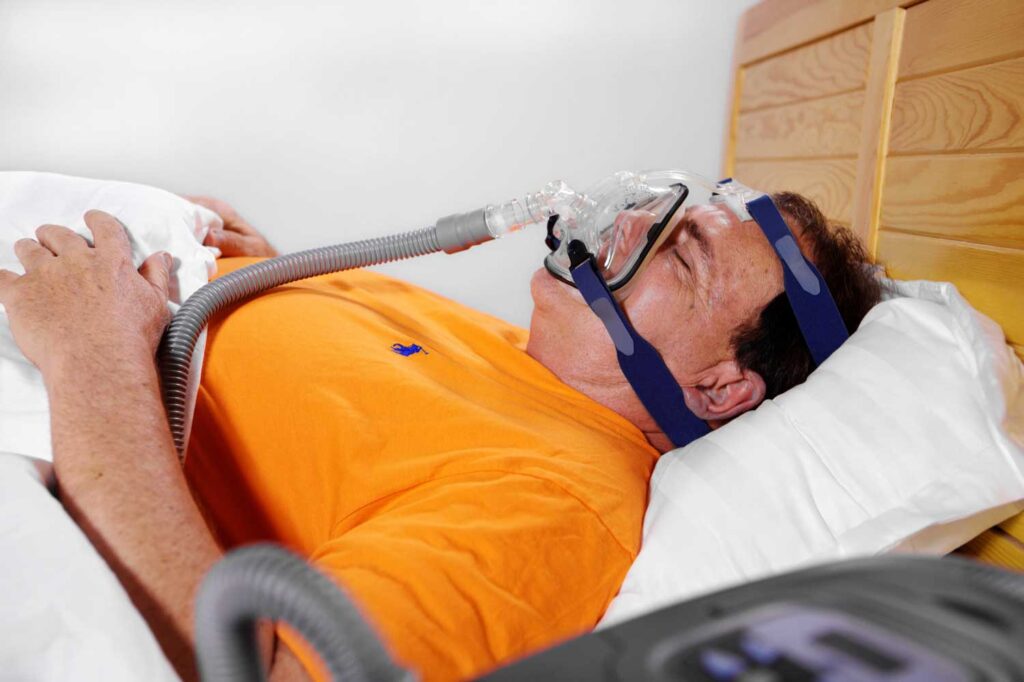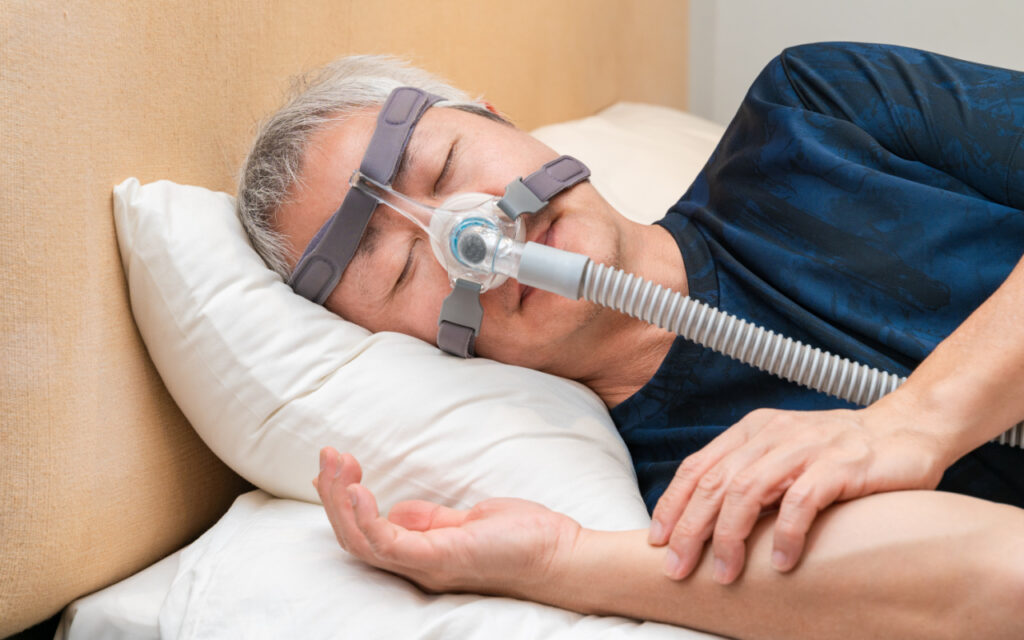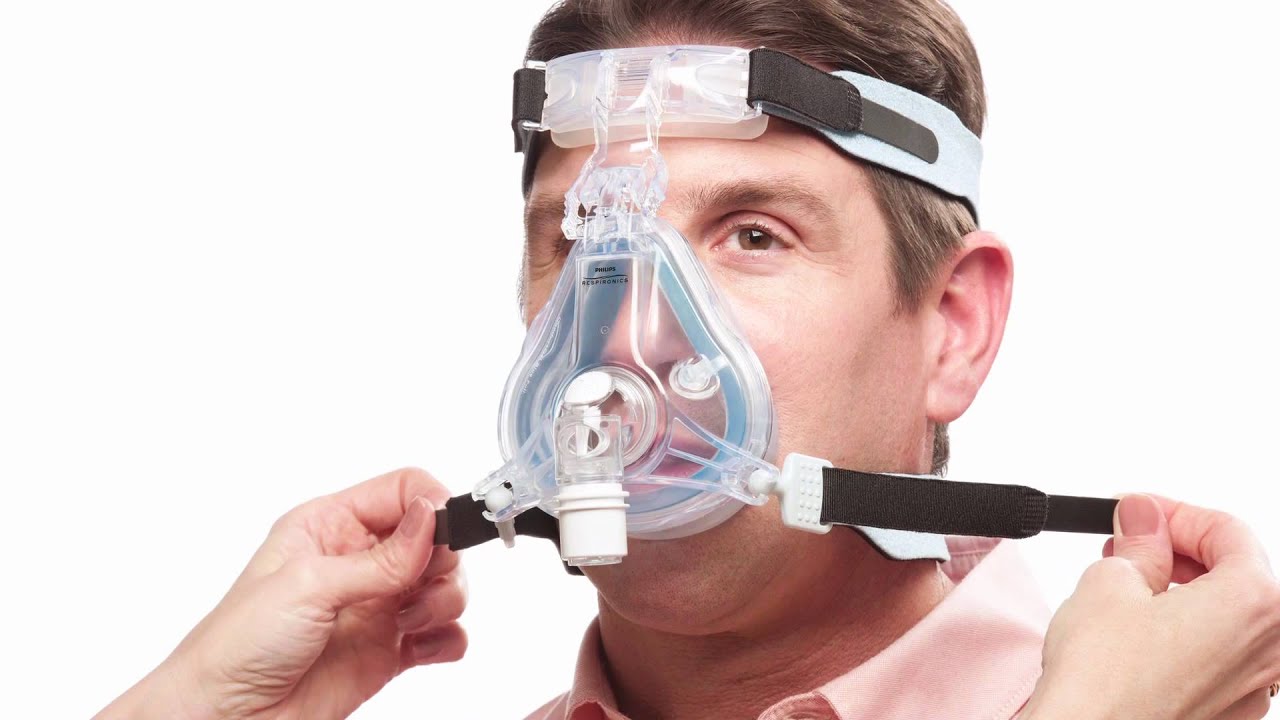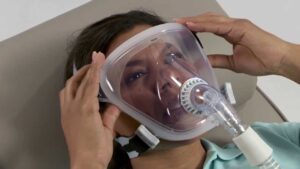There is a wide variety of CPAP masks to choose from. In this piece, we will discuss the various CPAP masks available on the market today.
Nasal CPAP masks
The design of this mask is similar to a dome, and it creates a barrier around the nose. There is a wide variety of forms available, so there are many alternatives to choose from to fit various facial shapes. Since air is not being forced straight into the nasal passages, the flow of air has a somewhat more natural feel to it. This also makes it possible to employ greater pressures, which is perfect for those who have severe cases of sleep apnea.
However, despite its name, nasal cpap mask can only be used via the nose to be effective. If you sleep with a nasal mask but breathe via your mouth instead of your nose, the mask will not be effective. Quite a few of the products on the market come equipped with a chin strap that you may use to keep from accidentally letting your lips hang open. People who have allergies or chronic sinusitis should not choose this option since it is not appropriate for their conditions. Click here to get what is a CPAP mask?
If you have facial hair, the seal that is created by the padding on the nasal mask could not work as well, which might result in air leaking out of the device. Additionally, some users have reported that the straps on the head are uncomfortable and that there is pressure on the bridge of the nose. Fitting and adjusting the garment correctly may often help alleviate this issue.
Nasal mask pros
- Higher pressures are achievable, making it suited for severe cases of sleep apnea
- There is a wide variety of forms to choose from for a best fit
- Provide a more comfortable fit than full face CPAP masks
Nasal mask cons:
- the possibility of air leakage with facial hair
- the inability to use the mask before going to bed or when wearing glasses
- the fact that the mask is unsuitable for mouth breathers and those who suffer from nasal congestion.
Nasal pillows and splints
This sort of mask, which also goes by the name nasal pillow, is designed to sit on top of your upper lip and has two cushioned prongs that are inserted straight into your nostrils. People who find other CPAP masks to be too claustrophobic or unpleasant sometimes choose this one since it is the simplest and most compact of all of the available options.
Nasal cushions are more convenient than other options since they are less bulky and cover less of your face. If you want to wear the mask for a while before going to bed, this is the best way to do it. Because of its more compact profile, you won’t have to make any changes to your evening routine, as opposed to when you would have to do so with other CPAP masks, which would block your line of sight and prohibit you from donning glasses.

Because the seal is only established on the nostrils, those who have more facial hair may still benefit from using nasal cushions.
Because air is pushed straight into your nasal passages under high pressures, the experience may be very unpleasant. Because of this, nasal cushion CPAP masks are not the best option for persons who have severe cases of sleep apnea. Dryness and discomfort in the nasal passages may be caused by direct airflow.
To reiterate, the gadget is only effective for those who breathe through their noses. Even if you sleep with your mouth open but are able to breathe normally through your nose, you may still benefit from using nasal pillows if you combine their usage with a device that keeps your mouth closed.
Pros of nasal cushion use
It is less likely that air will escape, it is more comfortable to wear when awake, it is less likely to cause claustrophobia, and it may be worn by those who have facial hair.
Cons of using a nasal cushion
- High pressures may be painful, making it less suited for severe cases of sleep apnea
- they can also induce dryness in the nasal passages
- they are not appropriate for those who breathe through their mouths.

Face-covering CPAP masks
Since these CPAP masks are broader and cover both the nose and mouth, they are best suited for those who breathe through their mouths. Full-face CPAP masks are an option to consider if wearing a chinstrap has caused you difficulty in the past or if you often suffer from a stuffy nose.
Because the air does not enter your airway directly, wearing a full-face mask makes it possible to tolerate pressures that are far higher. Because it is possible to employ high pressures, this mask is an excellent choice for those who have severe cases of sleep apnea.
Because of the additional weight of a full-face mask, it has a greater propensity to get unfastened throughout the course of the night, which is especially likely if you are a restless sleeper. On the other hand, there are a number of straps that may be repositioned in order to get the most comfortable fit. People who sleep on their backs are the perfect candidates for this mask.
Because of the larger surface area that is in touch with your face, there are more spots that might potentially allow air to escape, and this is particularly true for those who have facial hair. It’s possible that your eyes may get irritated and dry as a result of the leakage that comes from the top of the mask.
It is challenging to use a full-face mask before going to sleep because of the thickness of the mask, which obstructs your field of vision and makes it tough to wear glasses at the same time.
Full-face mask pros
- High pressures may be tolerated, making it suited for severe cases of sleep apnea since it is good for those who sleep on their back.
- It is ideal for persons who breathe through their mouths.
Full-face cons:
- the possibility of air leakage; the mask’s bulkiness, which makes it easier for it to wander about throughout the night
- the difficulty of wearing the mask when awake.
What factors should I consider while selecting a CPAP mask?
Every person’s experience with a CPAP mask will be unique to themselves. General comfort and sensations of claustrophobia are both subjective and depending on the materials, design, and fit of the mask.
It is crucial to inform your doctor about all elements of your sleep and evening routine when consulting with them about the possibility of using CPAP. This will allow them to choose the mask that works best for you. Don’t forget to try on a variety of styles and to check that the available adjustments provide you with the best possible fit.


